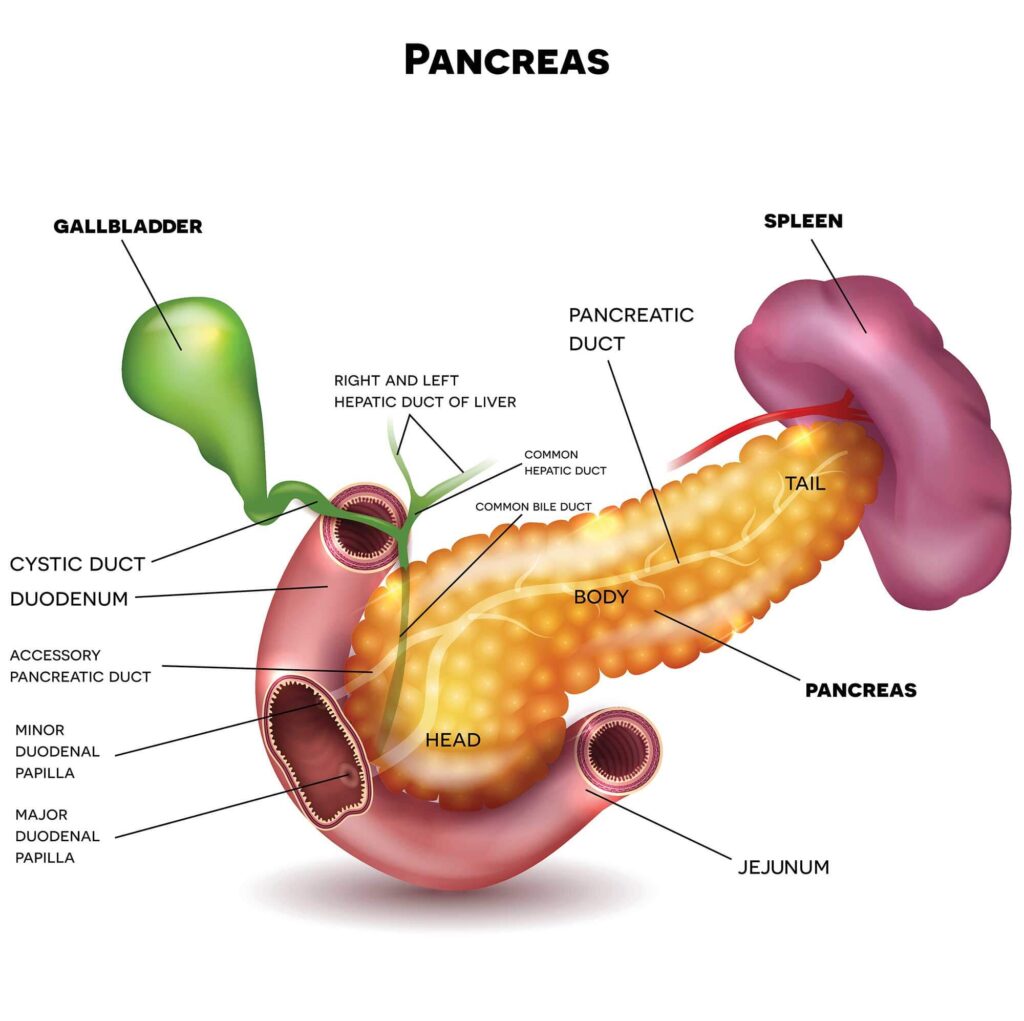Pancreatic cancer, though relatively rare, is one of the deadliest forms of cancer, presenting unique challenges for patients and their loved ones. In this blog post, we’ll explore the complexities of pancreatic cancer and provide valuable insights and strategies for navigating this journey with resilience and hope.
Cancer treatments like chemotherapy and radiation are like a double-edged sword, targeting cancer cells but also affecting healthy tissues. Proper nutrition can act as your armor, helping you combat side effects, enhance your treatment tolerance, and speed up healing.
Understanding Pancreatic Cancer: What You Need to Know Pancreatic cancer arises when malignant cells form in the tissues of the pancreas, a vital organ located behind the stomach. Despite advances in cancer treatment, pancreatic cancer remains challenging to detect and treat, often presenting at advanced stages when treatment options are limited.
Symptoms and Risk Factors: Recognizing the Signs Symptoms of pancreatic cancer may include abdominal pain, jaundice, unexplained weight loss, and digestive issues. However, these symptoms can be vague and easily overlooked, leading to delayed diagnosis. Risk factors for pancreatic cancer include age, smoking, obesity, family history, and certain genetic conditions.
Early Detection and Diagnosis: The Importance of Awareness Early detection is critical for improving outcomes in pancreatic cancer, yet the disease is often diagnosed at an advanced stage. Increased awareness of symptoms and risk factors, coupled with proactive screening for high-risk individuals, can lead to earlier diagnosis and potentially more effective treatment options.
Treatment Approaches: A Multidisciplinary Approach Treatment for pancreatic cancer typically involves a combination of surgery, chemotherapy, radiation therapy, and targeted therapy. A multidisciplinary team, including surgical oncologists like Dr. Amitabh Jena, medical oncologists, radiation oncologists, and other specialists, collaborates to develop personalized treatment plans tailored to each patient’s needs.
Supportive Care and Quality of Life: Nurturing the Whole Person Living with pancreatic cancer can be physically and emotionally demanding, impacting both patients and their families. Supportive care services, including pain management, nutritional support, and psychosocial support, play a crucial role in enhancing quality of life and managing symptoms throughout the treatment journey.
Empowering Patients and Families: Resources and Resilience Empowerment is key to navigating the challenges of pancreatic cancer. Dr. Amitabh Jena and his team are committed to providing patients and their families with comprehensive support, education, and resources to help them make informed decisions and cope with the complexities of the disease.
Conclusion: Navigating the Journey with Hope While pancreatic cancer presents formidable challenges, it’s important for patients and families to remember that they are not alone. By arming themselves with knowledge, seeking support, and embracing resilience, individuals can navigate the journey with hope and determination, finding strength in the face of adversity.







